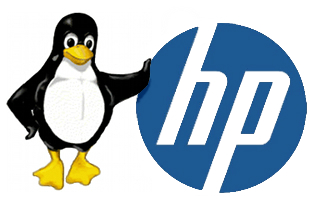HP donates code to the Linux kernel
 HP specialists have accumulated vast experience in developing and supporting their own UNIX-based operating systems, such as HP-UX and VMS. However, at the moment, the company is closely monitoring the strengthening of the position of Linux and Windows in the market of business-critical computing. A growing number of customers are introducing hardware into their systems on the traditional x86 platform, running different versions of Linux and Windows. HP's response to this situation was the Project Odyssey initiative, which we already wrote about, but the company didn’t limit itself to just this move.
HP specialists have accumulated vast experience in developing and supporting their own UNIX-based operating systems, such as HP-UX and VMS. However, at the moment, the company is closely monitoring the strengthening of the position of Linux and Windows in the market of business-critical computing. A growing number of customers are introducing hardware into their systems on the traditional x86 platform, running different versions of Linux and Windows. HP's response to this situation was the Project Odyssey initiative, which we already wrote about, but the company didn’t limit itself to just this move.HP representatives announced their intention to bring their own work to the Linux kernel in collaboration with Red Hat, which has its own Linux distribution for business-critical computing. They also voiced HP's desire to work with the open source community instead of releasing a fully native operating system.
It should be noted that in the past, the company actively promoted its own OS for servers with Intel Itanium processors, and does not intend to stop supporting and developing these systems. However, now, in an effort to encourage customers to use less expensive and more common hardware and software, HP is shifting towards integrating Xeon processors and Linux OS into their business-critical systems.
Kirk Bresniker, CTO of Business Critical Systems, said the company plans to provide strong support for Linux and Windows. HP has a long-standing fruitful relationship with Microsoft: in particular, at one time, Microsoft products debuted in the field of scalable business-critical platforms with the release of Windows for Itanium. "We are interested in partnering with Microsoft, and perhaps even more interested in interacting with the Linux community, because only in this way can we bring something useful to our existing business."
')
Bresniker's comments about the partnership with the Linux community should be a confirmation of the seriousness of intentions, if only because stopping the promotion of their UNIX versions means a lot to the company. According to Kirk, “instead of developing our own distribution, or writing independent patches independently of the community, we will selectively implement technologies at kernel.org, as well as some open projects that complement this work, in collaboration with Red Hat, as with major OS distributor for business critical computing. "
Representatives of Red Hat have already reported that the company stops the development of its popular distribution for the platform Intel IA64. And HP additionally emphasized in communication with the journalists of The Inquirer that Project Odyssey is in fact a business-critical cloud, capable of using it to work on both Itanium-based and Xeon-based systems.
Additional confirmation of HP's intentions for the Linux-community can be the words of HP marketing manager Jim Loslink in a comment to The Inquirer reporters: parts of the tasks. Thus, if the industry and our customers pay more and more attention to such solutions, we, of course, will support them and offer various options regardless of the actions of Oracle (ceased to support the IA64 platform). ”
Nevertheless, despite HP's vigorous actions due to the changed market situation and the potentially significant contribution to the development of Linux, the company will still continue to develop its HP-UX operating system, since in many real-world tasks users still prefer to use this proprietary OS. Obviously, the sales market for this OS has not gone away, but HP still recognizes that growth is now occurring in the area of more accessible, but with business efficiency, Linux-based business-critical systems.
Materials on the topic:
Source: https://habr.com/ru/post/142047/
All Articles